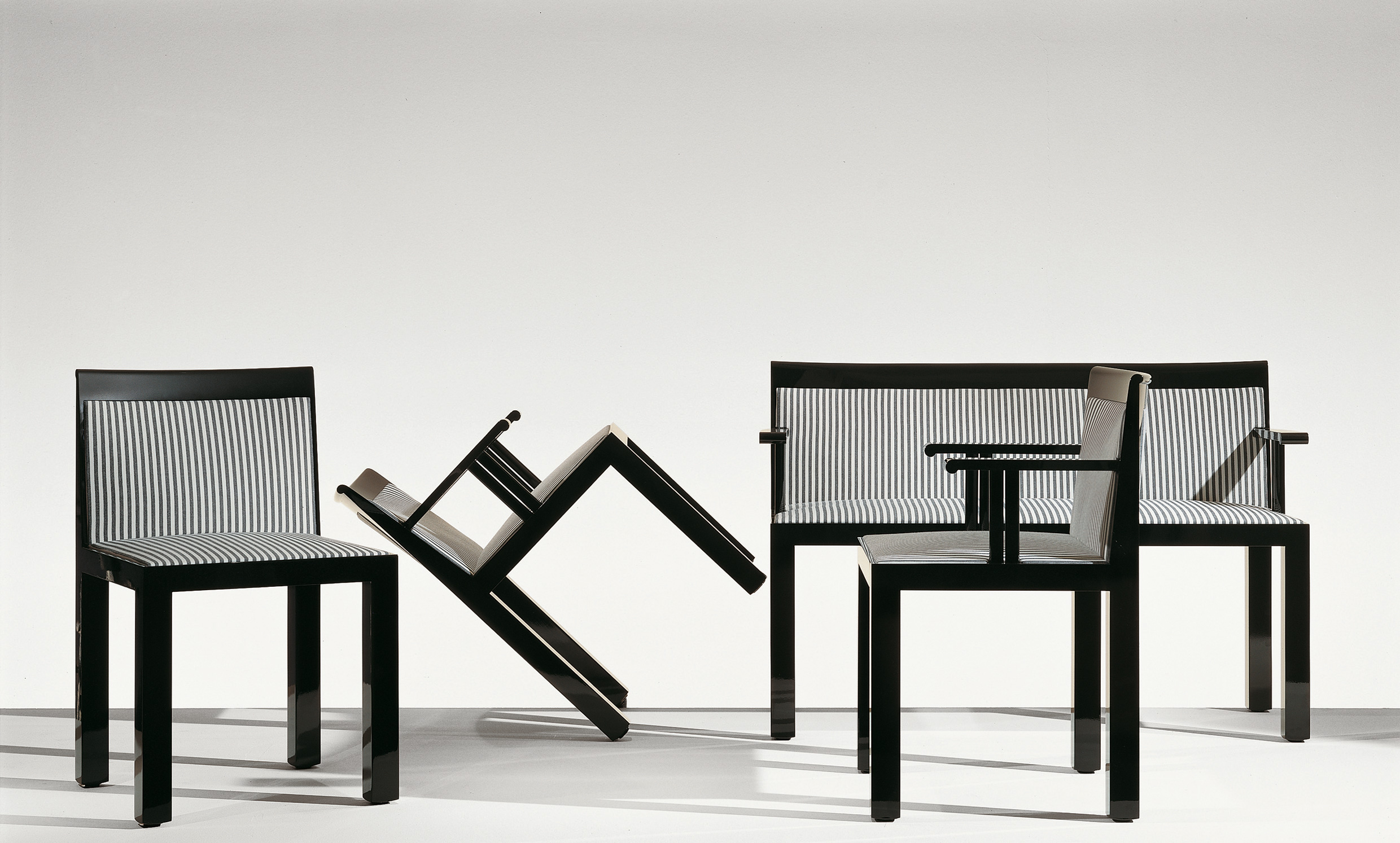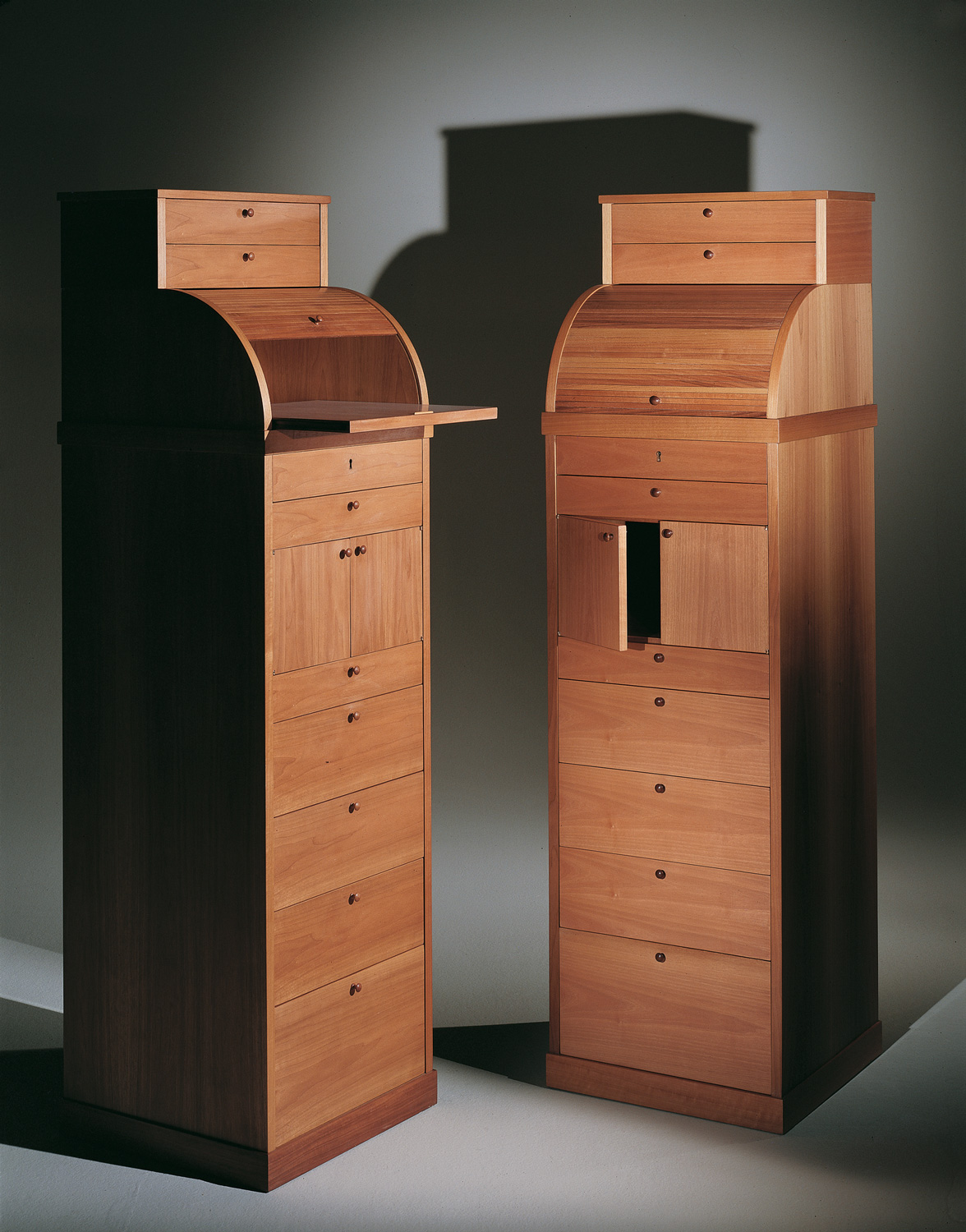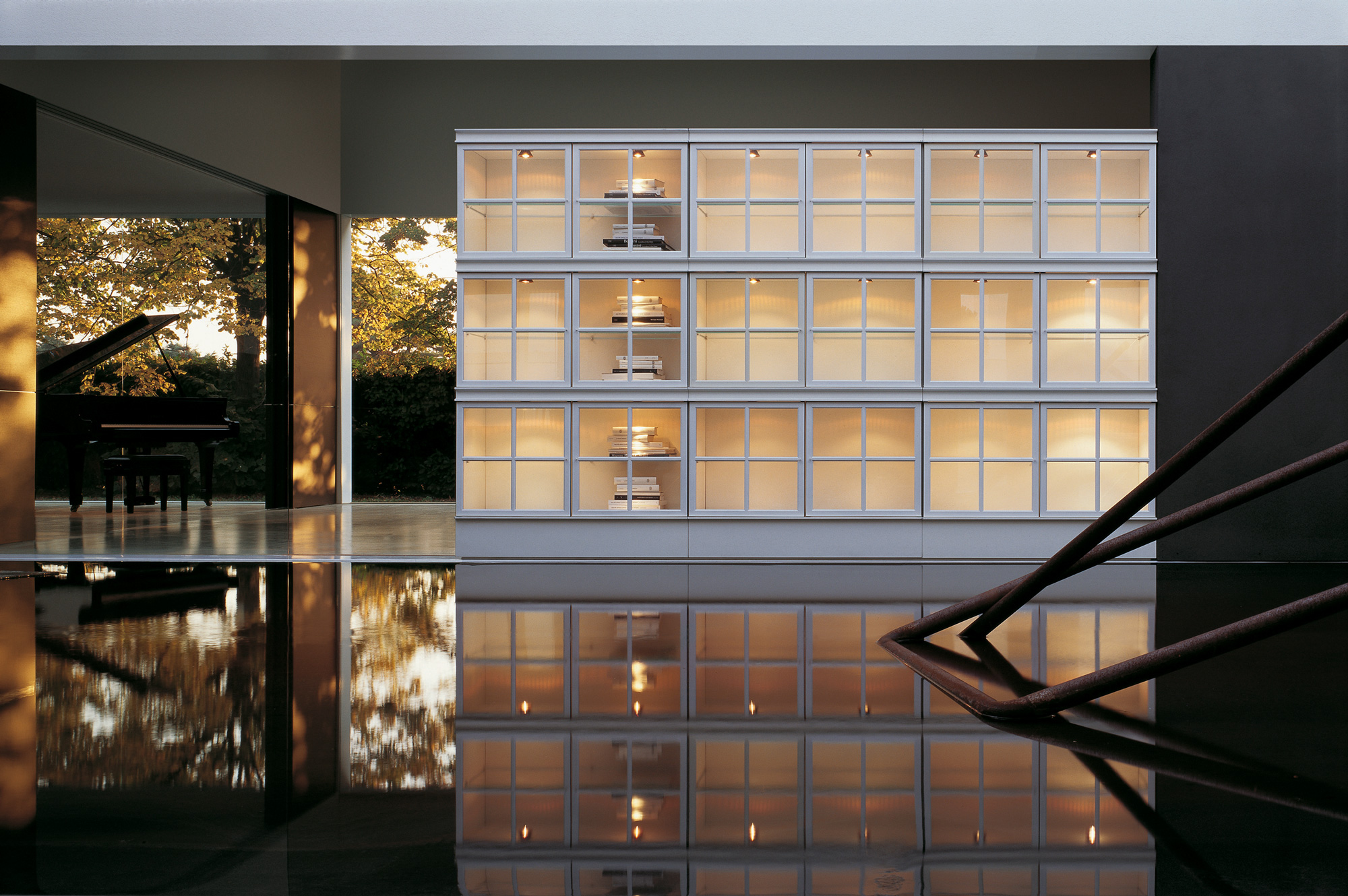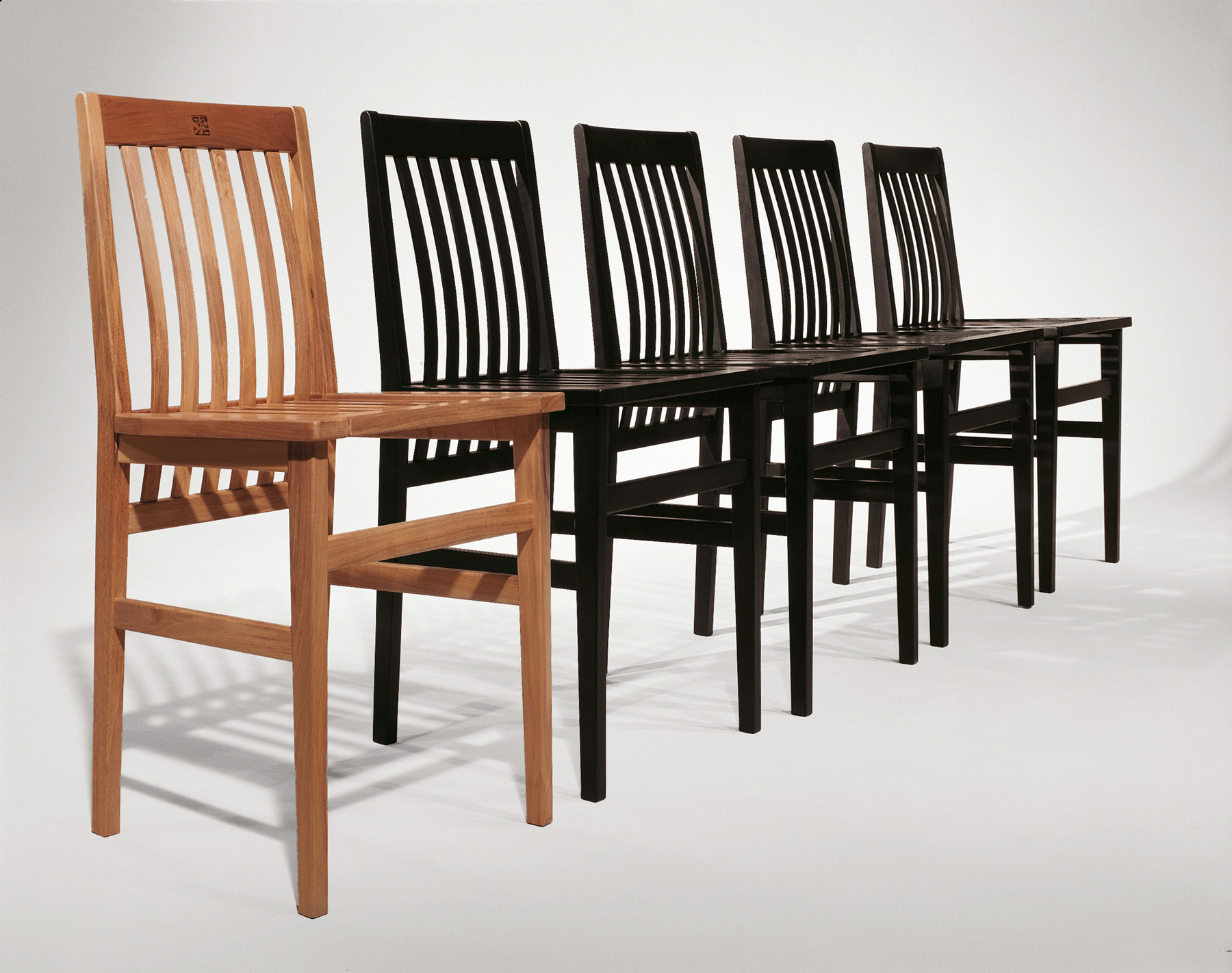Search for articles, topics or more
browse by topics

Search for articles, topics or more

1980, the Milan International Furniture Exhibition: there is an unusual object at the Molteni stand, a sort of beach hut called, in fact, Elba Beach Hut and defined as a cupboard. Designed by Aldo Rossi, possibly the most internationally renowned and controversial Italian architect of the time, it derived from his previous designs (see the design Elba Beach Huts from 1973). Worth noting is that the previous year Vico Magistretti won the Golden Compass with the lamp Atollo, built on simple geometric forms, a cylinder, a cone, a spere, and immediately bought by the Moma in New York, so becoming possibly the last rationalist Italian design icon; at the same time, Memphis and Alchimia were presenting their colourful, aggressive, somewhat askew neofuturist or post-radical or whatever objects. Rossi’s design seemed to open up an alternative pathway.
A pathway where objects – unlike with rationalist abstraction or neofuturist assemblages – could be used to reread the history of shapes and types, where autobiographical memories could once again manifest themselves, where a relationship between tradition and future was re-established. And the hut, a small domestic object, was on the one hand imbued with autobiographical memories, but also brought to mind, with its tenuous colours, memories of Thirties painting, of the call to order of Carrà’s beaches for example. Over the following fifteen years, Rossi designed a series of furniture for Molteni.

Over the following fifteen years, Rossi designed a series of furniture for Molteni&C. Among other designs, the neoclassically elegant armchair Teatro, named partly with references to the Carlo Felice theatre that Ignazio Gardella and Aldo Rossi had designed for Genoa. A small chair, Milano, simple and almost deliberately elementary, but finely proportioned for the kitchen of a middle class home rather than a rural cottage.
“Viviamo in curiose società,
che da un lato sono ossessionate dalla loro memoria,
ma che dall’altro sono ampiamente
divenute ignoranti della loro storia”
Jacques Revel
A tall piece, with opening desk and blind, Carteggio, a distinctive presence in a room, a personality, an allusion to habits that have long gone like writing letters and keeping them in small drawers: a huge success.


And a large bookshelf divided into square units, Piroscafo, where geometric discipline is mitigated by the elegance of its thicknesses and moulding.
Rossi proposes a precise idea of the home and home living. In his own words: “The home represents the concrete way of life of a people, the manifestation of a culture, it changes very slowly.”
And with Rossi the house is once again a place with furniture similar to architecture, which presumably contains and houses objects (such as caffetti res) which are similar to architecture.
Here is the idea of a home design where history and memory, present and tradition, are links in an unbroken chain, outside the breakaways of the avant-garde. Of course there is no illusion that the future can be stopped, and from this comes the slight melancholy that is often expressed; but there is a precise wish to reaffirm a lifestyle deeply rooted in Italian culture.
This idea of the home soon becomes the inspiration behind a series of designs, of “Molteni homes”, and naturally marks the company’s identity.
In total harmony with Rossi is another designer, Luca Meda, the mind behind a great number of designs fundamental in the creation of the company’s image and in its successes both in Italy and abroad. So much so that at least until the late nineties, Molteni identified itself with this lifestyle. Until a series of well known events, and a profound change in the scenario in Italy and abroad, led to the introduction of a new phase, with Molteni becoming known for its work with important new architects, such as Jean Nouvel and Norman Foster, and a series of new designers, such as Patricia Urquiola and Hannes Wettstein, to name but two.

Observing things and remembering. This dual concept holds the key to understanding the ties between Aldo Rossi and design.
The story of M&C, the magazine produced by the Molteni Group, is a long one. When it was first distributed at the end of the 1980s, it was called simply Il Giornalone [“Large Newspaper”]
It was 1968, the year of great and definitive events that left their mark on consciences, cultures, populations, lifestyles, and consumer habits.
Thanks for your registration.